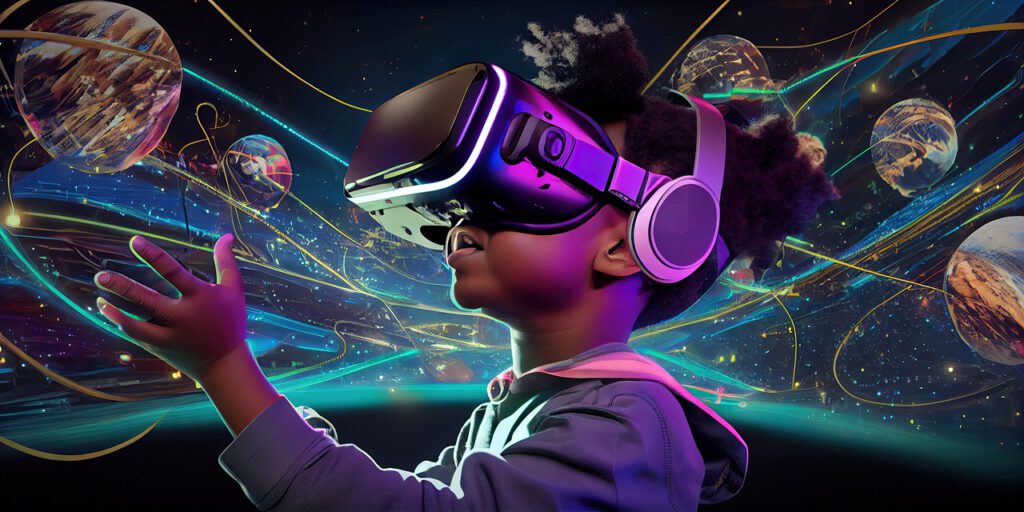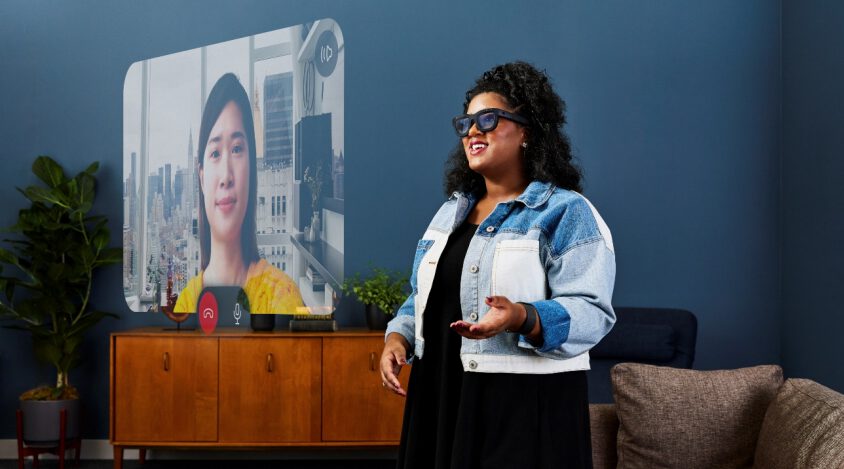The Metaverse – once pure science fiction – is now the subject of concrete research, including in the field of education. It is increasingly being discussed as a tool that could reshape the way we learn. But the crucial question remains: Is it the next revolution in education, or just a fascinating vision? A recent exploratory study suggests an answer somewhere between euphoria and caution. From my point of view, the metaverse should primarily be understood as an opportunity to rethink pedagogy – not as a replacement for schools, but as a catalyst for innovation in teaching.

Table of Contents
ToggleFrom Hype to the Classroom: What is the Metaverse in Education and how is it shaping Digital Learning?
The metaverse describes a networked, immersive, and persistent environment enabled by technologies such as Virtual Reality (VR), Augmented Reality (AR), Mixed Reality (MR), and Artificial Intelligence (AI). It conveys a stronger sense of presence and opens up more dynamic interaction possibilities than classic online platforms.
Numerous educational applications already exist:
- Noun Town – a language learning app for playful vocabulary acquisition.
- Piano Vision – a mixed reality tool that displays digital sheet music and enables interactive music learning.
- Gravity Sketch – a VR tool for 3D design used in both the creative industry and teaching.
- Math World VR – playful math training through immersive mini-games.
- Les Mills Body Combat – a VR fitness program that combines movement and learning.
Interest in the metaverse in education is steadily growing. Surveys have shown that almost half of potential users are open to learning in such environments. Pilot projects are being promoted in Asia, Europe, and North America, while hardware from companies like Meta and Apple is accelerating adoption.
Why Teachers and Students are Paying Attention: Generation Z and the Future of Learning on the Virtual Campus
Studies Show: Generation Z, in particular, sees the metaverse less as a replacement and more as an innovative addition to existing education systems. However, the perception depends heavily on:
- the technical maturity,
- user-friendliness,
- social acceptance
- and individual learning experiences.
Teachers are interested but also cautious. They recognize the potential for innovation but express concerns about costs, training, and integration into everyday life. Acceptance, therefore, depends not only on technology but also on the adaptability of education systems. The real challenge is to build trust and meaningfully embed immersive learning environments into didactic concepts.
Where the Metaverse Offers Real Added Value
The metaverse has particularly great potential where it overcomes classic learning boundaries:
- Making complex content clear: Abstract concepts from science, history, or art become tangible through immersive experiences. Imagine exploring ancient Rome not with a textbook, but by exploring its streets in VR – history becomes an experience, not just memorized.
- Promoting global collaboration: Learners can network worldwide and develop intercultural skills.
- Increase motivation: Gamification appeals to digital natives more than traditional teaching methods.
Obvious Challenges
As convincing as the opportunities sound, implementation is complex:
- Lack of infrastructure (no comprehensive access to high-speed internet or VR headsets).
- Limited willingness of many teachers to use new technologies.
- Risks to equal opportunities: Disadvantaged students could be left behind.
- Open questions about data protection, long-term health effects and sustainable motivation.
What Needs to Happen Next: EdTech Trends, AR Learning and Metaverse Training as Next Steps
The study makes it clear that a gradual development is more sensible than a hasty introduction. Pilot projects enable experiments on a small scale that provide valuable feedback.
Cooperation between pedagogy, politics, research, and business is crucial to develop solutions that are learner-centered and ethically sound. This includes clear frameworks regarding data protection, equal access, and the promotion of psychological well-being. From my point of view, educational leadership in particular is needed here: It must create structures that allow innovation while ensuring accessibility and fairness.

Source: Meta Blog, Orion: True AR Glasses Have Arrived, 2024
Conclusion: Metaverse Classrooms and the Role of Education Technology in the Next Generation of Learning
The metaverse has the potential to enrich education through immersive experiences. However, it will not replace schools and universities, but rather complement them. The real challenge lies in experimenting responsibly, avoiding inequalities, and using the technology where it demonstrably creates added value. The future of learning in the metaverse therefore depends not only on technical progress, but above all on smart and inclusive decisions that are made today. The metaverse will not replace school, but it can reinvent it. Whether this succeeds depends not only on technology, but above all on the decisions we make today.

